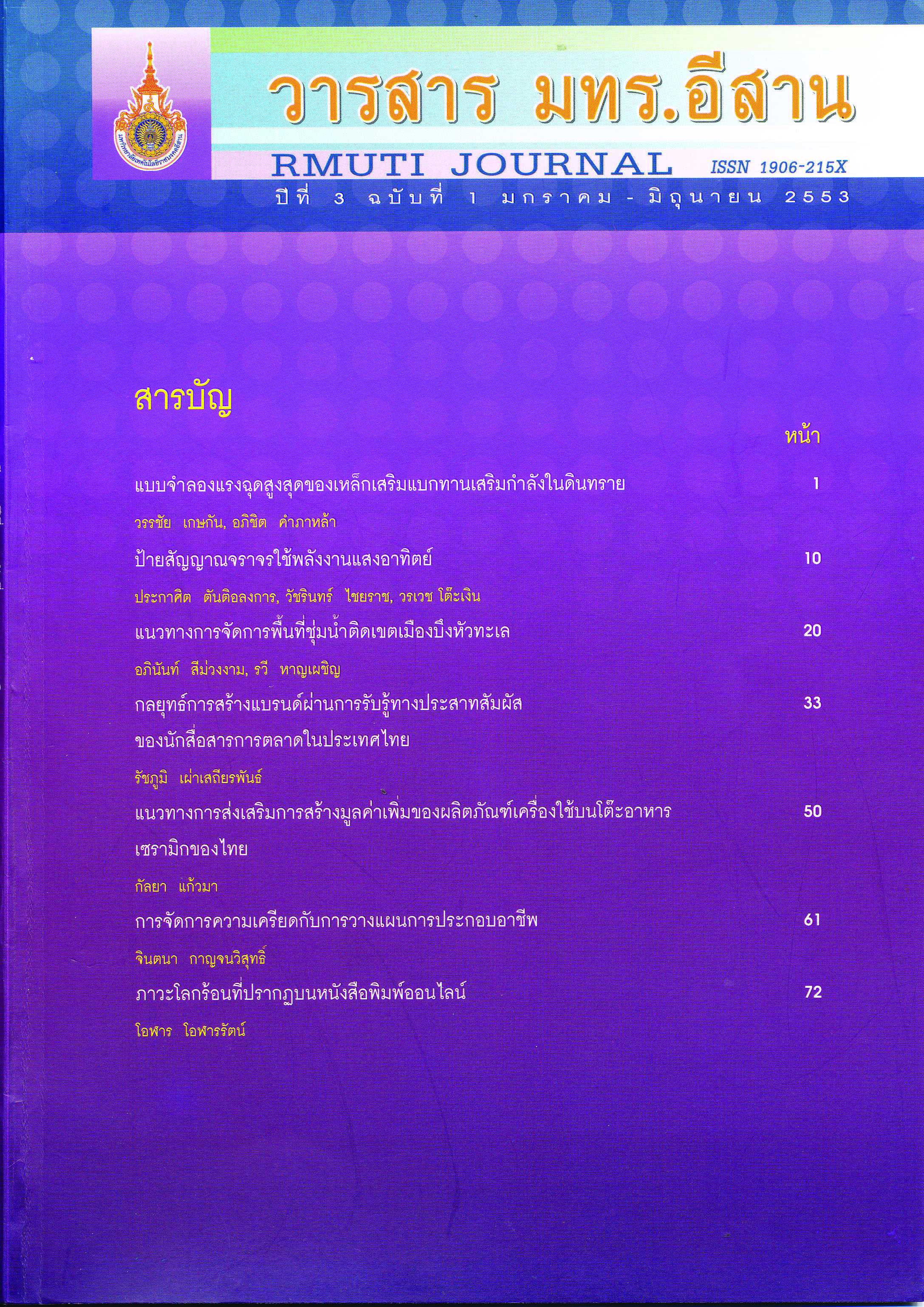การจัดการความเครียดกับการวางแผนการประกอบอาชีพ Stress Management and Career Planning
Main Article Content
Abstract
บทคัดย่อ
การจัดการความเครียดกับการวางแผนการประกอบอาชีพเป็นสิ่งสำคัญยิ่งในปัจจุบัน เนื่องจาก สถานการณ์โลกมีความก้าวหน้าทางเทคโนโลยี การเปลี่ยนแปลงทางด้านสังคม และเศรษฐกิจ อย่างรวดเร็ว คนในสังคมจึงต้องเร่งรีบและแข่งขันกันอย่างรุนแรง มีผลให้คนมีความเครียด ส่งผลกระทบต่อสภาวะทางจิตใจ ร่างกาย และพฤติกรรม สถานศึกษาเป็นส่วนหนึ่งของสังคม จึงควรหาแนวทางการจัดการความเครียดให้ผู้เรียน ซึ่งได้เสนอแนะไว้ 3 ด้าน คือ ด้านผู้เรียน ด้านผู้สอน และด้านสถานศึกษา และร่วมกับผู้เรียนในการวางแผนการประกอบอาชีพ โดย กำหนดวิสัยทัศน์ กำหนดภารกิจ ตัวชีวัดผลงาน ผลลัพธ์ และข้อมูลย้อนกลับในแต่ละอาชีพ ที่ผู้เรียนสนใจและคาดหวังว่าจะทำในอนาคต ซึ่งเป็นการเตรียมความพร้อมให้ผู้เรียนก่อน ออกไปประกอบอาชีพอย่างมีความสุข เพื่อให้ประสบความสำเร็จ เป็นผลดีต่อผู้เรียน ต่อหน่วยงาน รวมทั้งต่อสังคม และประเทศชาติ
คำสำคัญ : การจัดการ; ความเครียด; การวางแผน; การประกอบอาชีพ
Abstract
Stress management is one of the most important step parts of career planning. Due to recently, The world has evolved the advances of new technology, social dynamics and economy. People must be active and competed against each other Fiercely, resulting in stress that affects people’s mentality, health, and behaviors. Educational institution are of a part of a society, therefore educators must search for stress management guideline that could help students. Three stress management guideline are students, teachers and institution. Students must work collaboratively with teachers to plan careers by defining vision, mission, KPIs, outcome and feedback of each career, expectations of future career. These will guarantee student’s career readiness, happiness and success. This will yield positive result to student, office, society, and country as a whole.
Keyword: management; stress; planning; career

